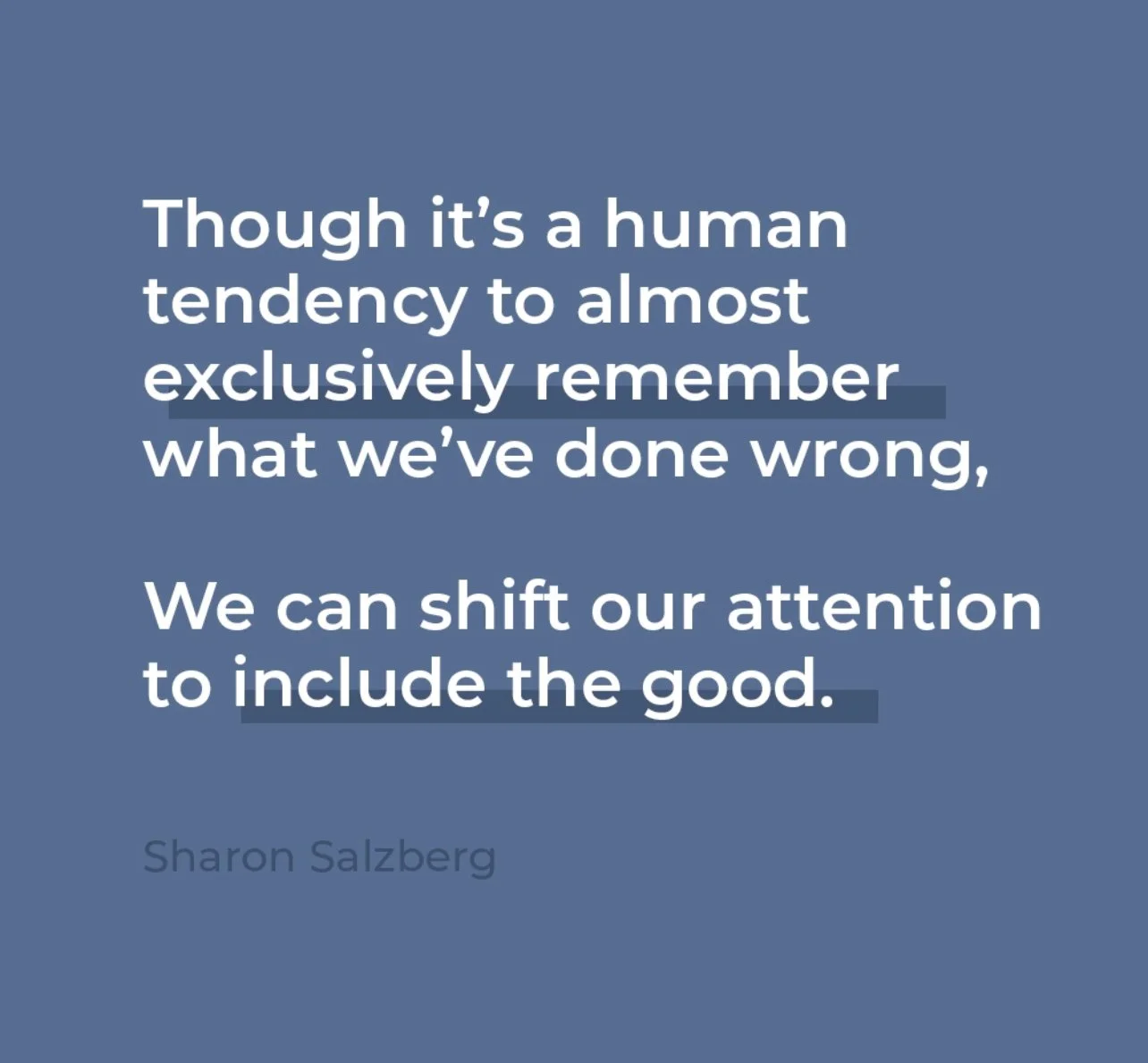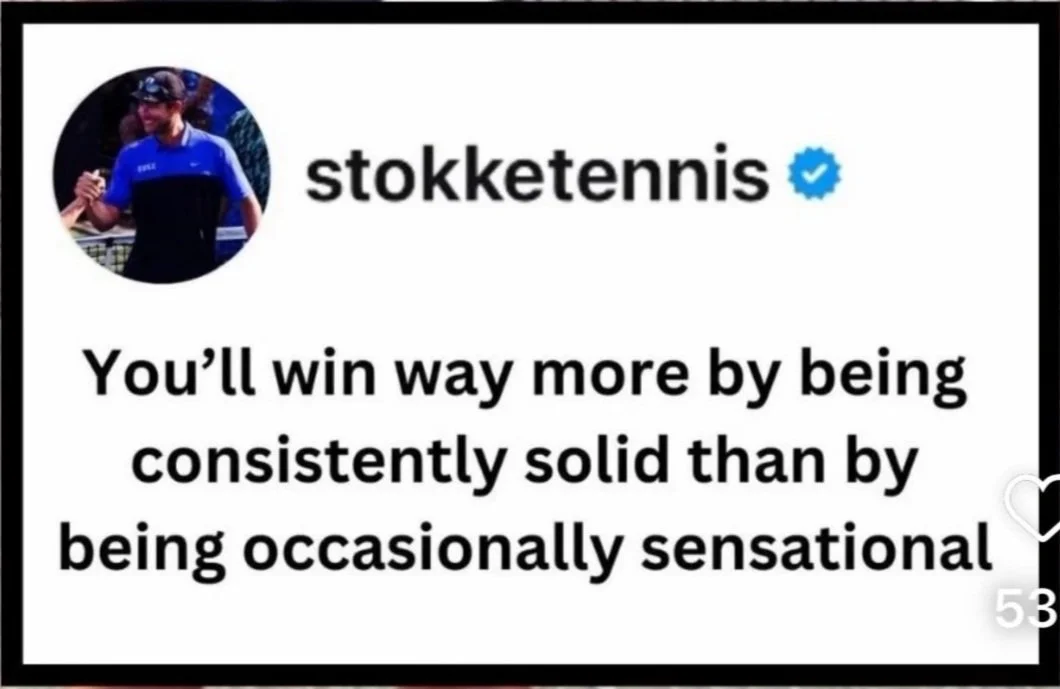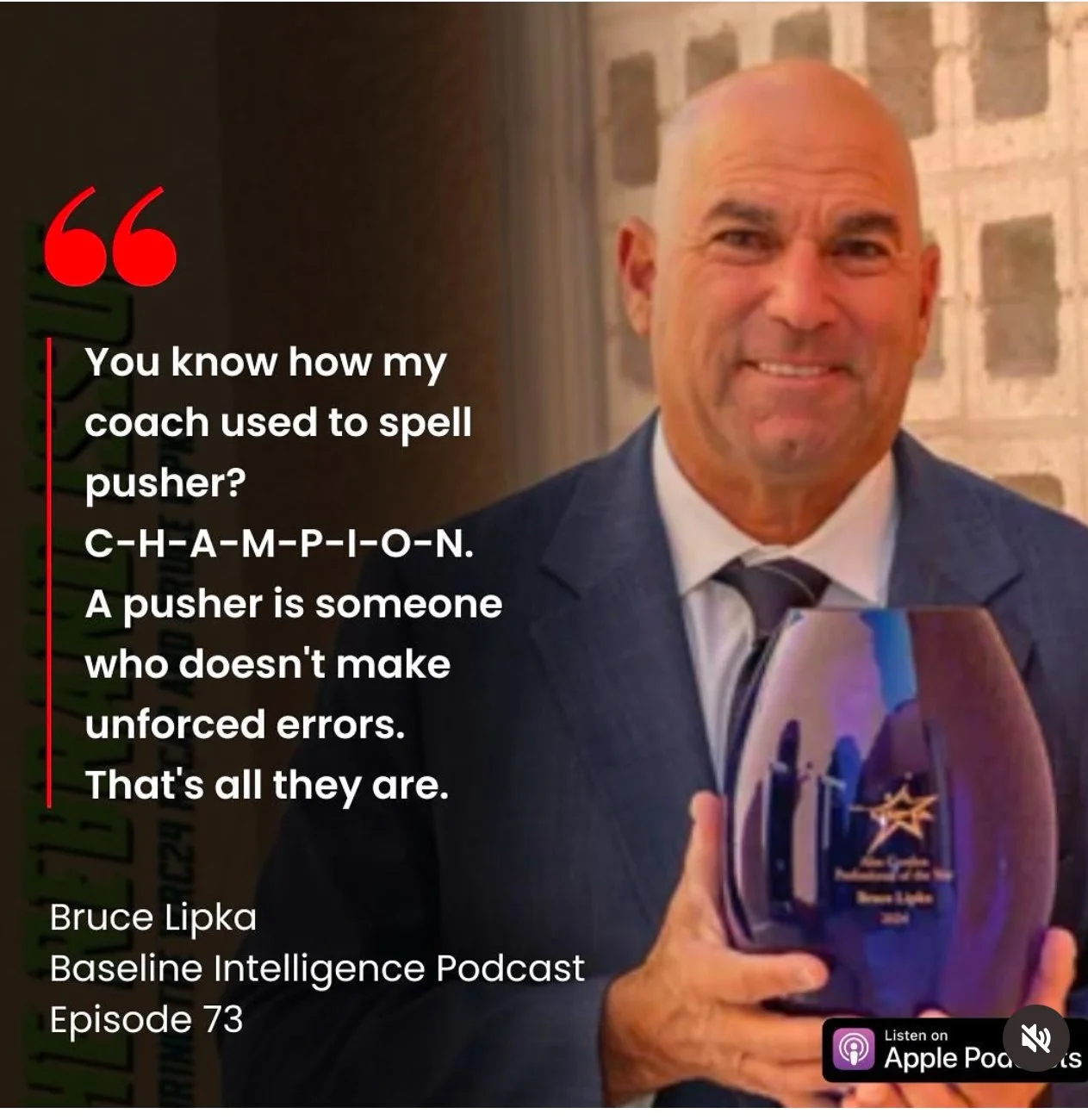Lesson 12 The Practice: Practice Makes Permanent
“I’m a firm believer in that you play the way you practice.”
The Power of Intentional Practice
From my earliest days in junior tennis, my coach would always say, “Practice makes…. permanent.” That phrase has stuck with me ever since. How we perform in matches is a direct reflection of how we practice. If we want to improve, we must approach every practice session with intentionality, focus, and purpose.
It’s not just about the number of hours you put in; it’s about how you show up each day. One way to maximize your practice is by embracing the principles of Penn State’s Wrestling Program—the most successful Division I NCAA wrestling program in history. They start every session by focusing on three key principles:
Know what you need to work on: Set clear, specific goals for improvement.
Have fun in what you’re doing: Enjoyment fuels long-term passion and commitment.
Be grateful for the opportunity. Gratitude shifts your perspective and grounds you in the moment. Hard work, infused with focus and gratitude, creates the foundation for consistent performance and success.
When we align with these three pillars, performance naturally flows. Winning and losing takes care of itself because our practices lay the foundation for consistent quality play.
“Under duress, we don’t rise to our expectations; we fall to our level of training.”
Teflon vs. Velcro
Have you heard the analogy of Teflon and Velcro?
We tend to be like Teflon for the positive, letting good experiences slip away without fully recognizing, absorbing, or embracing them.
But we’re like Velcro for the negative, clinging tightly to mistakes, replaying them in our minds, and allowing them to weigh us down.
This dynamic, called negativity bias (look it up; also mentioned in Lesson 6 with Dr. Luskin’s research), plays out vividly on the tennis court. You might hit 20 great shots in a row, but that one miss lingers in your mind, overshadowing the momentum you’ve built.
What if you flipped the script?
Be Velcro for your successes: Absorb the good shots. Replay them in your mind. Feel the rhythm and confidence they bring.
Be Teflon for your mistakes: Let errors slide off. Briefly reflect, learn from them, and then let them go. Focus on the next shot with clarity and positivity.
This shift in focus not only builds mental resilience but also creates a more enjoyable and productive experience on the court.
“You make your own luck. You make it in training.”
On-Court Tip
To make the most of every practice session, try these strategies:
Set Daily Intentions
Align with Penn State’s principles by clearly defining what you want to work on before stepping on the court. Whether it’s improving footwork, consistency, or a specific shot, intentional focus sharpens your efforts.Celebrate Small Wins
Each time you execute a good shot or strategy, take a moment to acknowledge it. Let the success sink in. Feel it in your body. Let it stick like Velcro.Release Mistakes Quickly
When errors happen—and they will—pause, take a deep breath, and visualize the mistake sliding off like water on Teflon. Shift your focus back to the task at hand.Engage with Gratitude
Practice isn’t just work; it’s an opportunity to grow, improve, and enjoy the game you love. Gratitude helps you appreciate the process and stay grounded in the present moment.
By approaching each practice with intentionality and purpose, you’re not just improving your game—you’re building the mental and physical habits that will serve you under pressure. Practice makes permanent. So, make it count.
“Hard work beats talent when talent fails to work hard.”
Most amateur tennis players lose points in the first 3 shots. On average tennis rallies last for 3 to 5 shots. So what you do within those first few balls you hit is critical.
“Neurons that fire together wire together. Passing mental states become lasting neuro traits.”
“Stop measuring days by degree of productivity and start experiencing them by degree of presence.”




